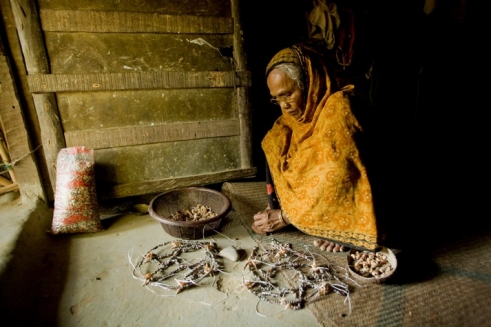On 1 May, International Workers Day, we launch a new report that reveals just how much work older people in poorer countries do, and the difficulties they face.

“Forgotten workforce: Older people and their right to decent work” is the first extensive investigation of older people and work in developing countries.
The report dispels some common myths – that older people do not work, that they are dependent on their families, and that they do not contribute to the economy.
Instead, it reveals that millions of people across the world continue to work well into old age.
At a glance:
- Fewer than one in five older people receive any kind of pension.
- More than 70% of men over 60 continue to work in low- and middle-income countries.
- In Malawi, nearly 100% of men and over 80% of women over 60 are working. This compares with just over 20% of men and around 10% of women in the UK.
Rodney Bickerstaffe, former President of the UK National Pensioners Convention commented on the new report:
“I have long campaigned for the protection of workers’ rights and the right to a decent retirement – rights that those in secure jobs must always be vigilant to protect.
“The conditions of older workers – women and men – are rarely considered by policymakers and politicians, particularly in developing countries.
“It’s a common myth in the west that people in poorer countries can rely on savings, families or government support in old age. The vast majority of older people across the world have no option but to work into old age”.
A long day’s work
70-year-old Mabia, a necklace maker from Bangladesh is just one example.
“My daughter and I make necklaces for a living, and earn about 50 taka a day (US$0.75). I work from sunrise to sunset but I have cataracts and often feel weak and sick.
“Rising food prices mean we are buying smaller and smaller amount for rice and vegetables for ourselves and my grandchild.”
Richard Blewitt, Chief Executive of HelpAge International says:
“Factors like poverty, migration, discrimination, low rates of literacy and changes in family units are forcing older people into work that is low-paid, physically dangerous, hazardous or insecure. This endangers the lives and health of millions.
“We’re calling for governments across the world to implement non-contributory pensions to support income security for all older men and women.
“We also need to see the political will to enforce age discrimination legislation to protect older workers from discrimination and exploitation in both the formal and informal economy.”
Download the report: “Forgotten workforce: older people and their right to decent work”
Download the media report: “Unreported Lives: the truth about older people’s work”
